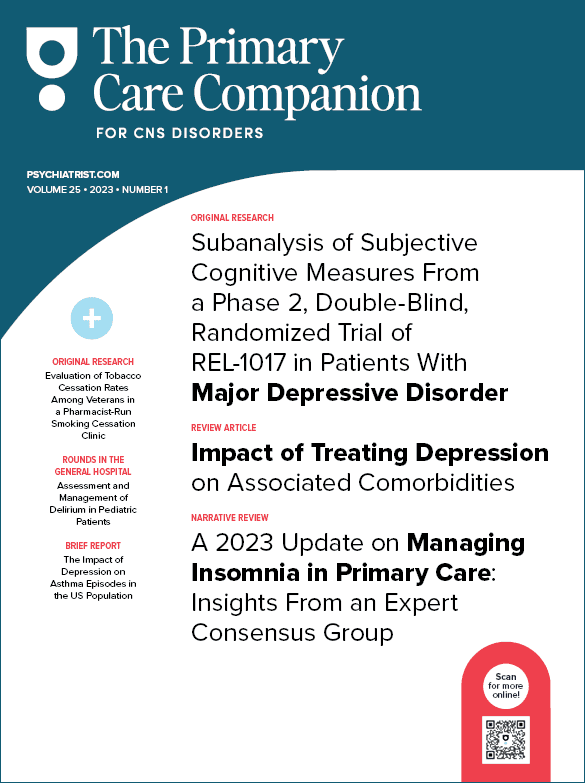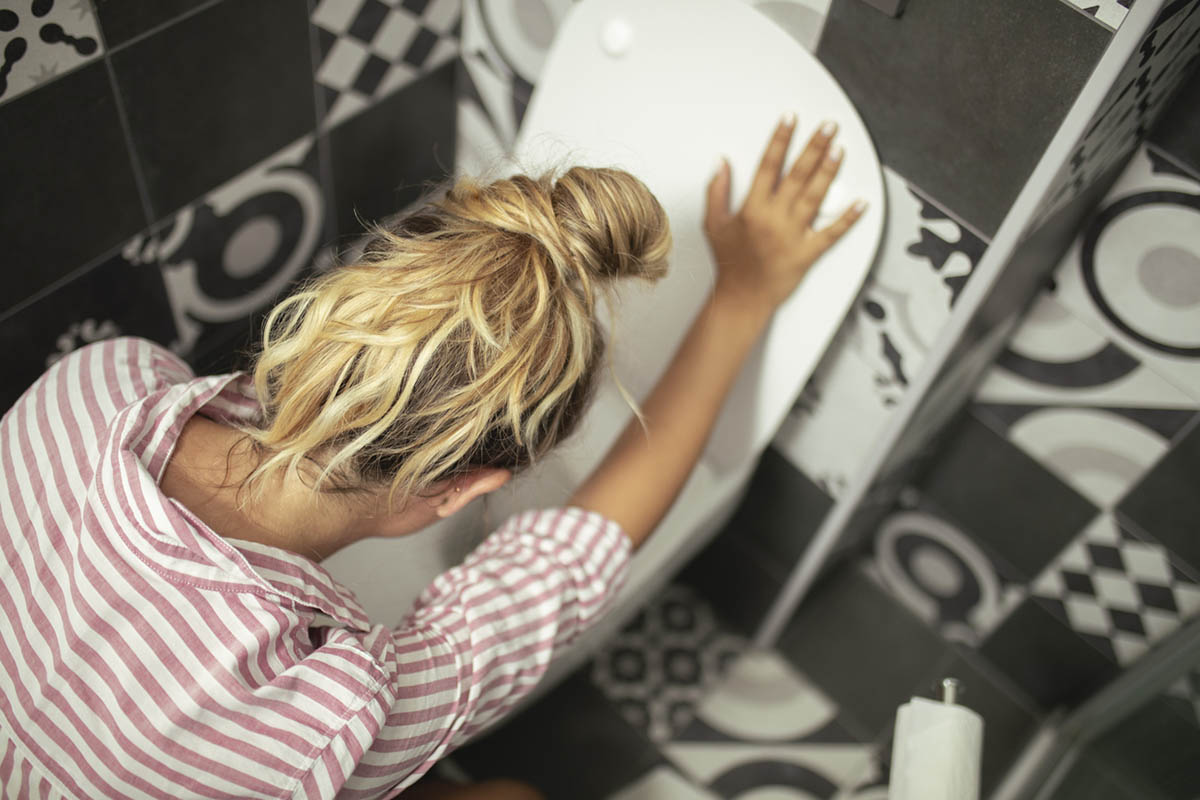
Prim Care Companion CNS Disord 2021;23(3):20l02600
To cite: Unais T M, Uvais NA. Hemorrhoids in obsessive-compulsive disorder. Prim Care Companion CNS Disord. 2021;23(3):20l02600.
To share: https://doi.org/10.4088/PCC.20l02600
© Copyright 2021 Physicians Postgraduate Press, Inc.
aDepartment of Surgery, Iqraa International Hospital and Research Centre, Calicut, Kerala, India
bDepartment of Psychiatry, Iqraa International Hospital and Research Centre, Calicut, Kerala, India
*Corresponding author: N. A. Uvais, MBBS, DPM, Iqraa International Hospital and Research Centre, Malaparamba, Calicut, Kerala 673009 India ([email protected]).
Obsessive-compulsive disorder (OCD), when it becomes chronic, rarely can manifest with secondary physical conditions.1 Here, we report the case of a young male patient who developed hemorrhoids and life-threatening anal bleeding as a result of OCD.
Case Report
A 20-year-old man presented to the outpatient surgery department of our hospital with complaints of bleeding from the rectum and was diagnosed with hemorrhoids. He was prescribed oral daflon 3,000 mg/d for 4 days and 2,000 mg/d for the next 3 days, followed by 1,500 mg/d. Daflon, micronized purified flavonoid fraction (diosmin 450 mg plus hesperidin 50 mg) is a potent venotropic drug used for its vasoconstrictive properties. He also reported spending more time on the toilet along with repetitive handwashing behavior and was referred to the psychiatry department.
The patient reported recurrent excessive handwashing behavior since age 2 years. He would spend at least 3 hours engaging in washing behavior per day. He also developed doubts that his defecation was complete and would push very hard for at least half an hour to make sure that he defecated completely. Gradually he developed bleeding from the rectum, causing his hemoglobin level to fall to 3.4 mg/dL, and he was treated with whole blood transfusion from a local hospital. A colonoscopic evaluation was done to rule out any other causes for rectal bleeding, and the result was negative. His mental status examination revealed anxious affect with obsessions of dirt and contamination, obsessive doubt, compulsive washing, and compulsive straining while defecating. He was diagnosed with OCD, mixed type according per ICD–10 criteria. He was psychoeducated regarding his illness and was treated with oral sertraline 50 mg/d, which was gradually titrated to 75 mg/d. He reported significant improvements in all obsessive symptoms and significant reduction in compulsive straining behavior over a period of 6 weeks. He also reported significant reduction in rectal bleeding. Considering the improvements, the decision was made to continue medical management and avoid surgical treatment.
Discussion
Hemorrhoidal disease can present variably as itching, discharge, discomfort, swelling, bleeding, or pain.2 The swelling around the anus as perceived by the patient is due to the prolapse of anal cushions caused by straining during defecation, and in the advanced stages these cushions remain prolapsed permanently. These prolapsed cushions can bleed due to trauma of friction by the hard stools or due to congestion outside a tight anal sphincter.
Symptoms like itching, discomfort, and bleeding are common in all hemorrhoids. But, prolapse and the resultant swelling are commonly seen in patients who prefer to strain during defecation for a longer period. Chronic constipation, perianal discomfort, and swelling in the anus are the usual reasons for prolonged straining. OCD per se as a reason for prolonged straining is probably unusual or underreported, but the mechanism is sufficient to produce a prolapse of anal mucosa and anal cushions.
Our patient used to spend around 3 hours on the toilet, and continued bleeding resulted in severe anemia. Treatment of OCD along with a high dose of venoconstrictor medication stopped bleeding in 1 week. Retraining of bowel habits helps to stop the mucosal prolapse in the long run.
Published online: June 3, 2021.
Potential conflicts of interest: None.
Funding/support: None.
Patient consent: Consent was received from the patient to publish this case report, and information has been de-identified to protect anonymity.
References (2)

- Walz D, Huth M, Voderholzer U. Life-threatening bleeding in obsessive-compulsive disorder [in German]. Psychother Psychosom Med Psychol. 2014;64(9-10):390–392. PubMed
- Sun Z, Migaly J. Review of hemorrhoid disease: presentation and management. Clin Colon Rectal Surg. 2016;29(1):22–29. PubMed CrossRef
Enjoy free PDF downloads as part of your membership!
Save
Cite
Advertisement
GAM ID: sidebar-top




